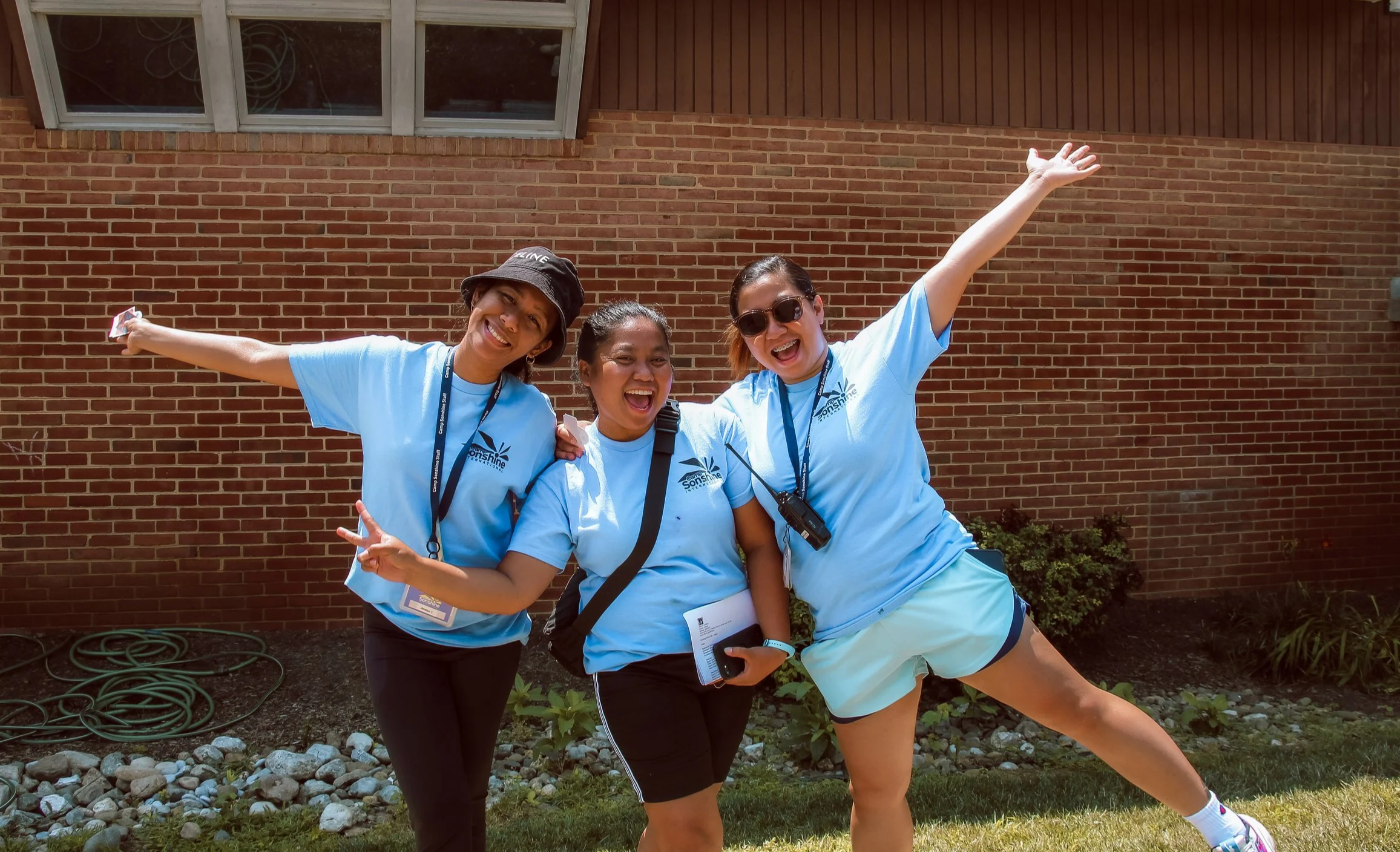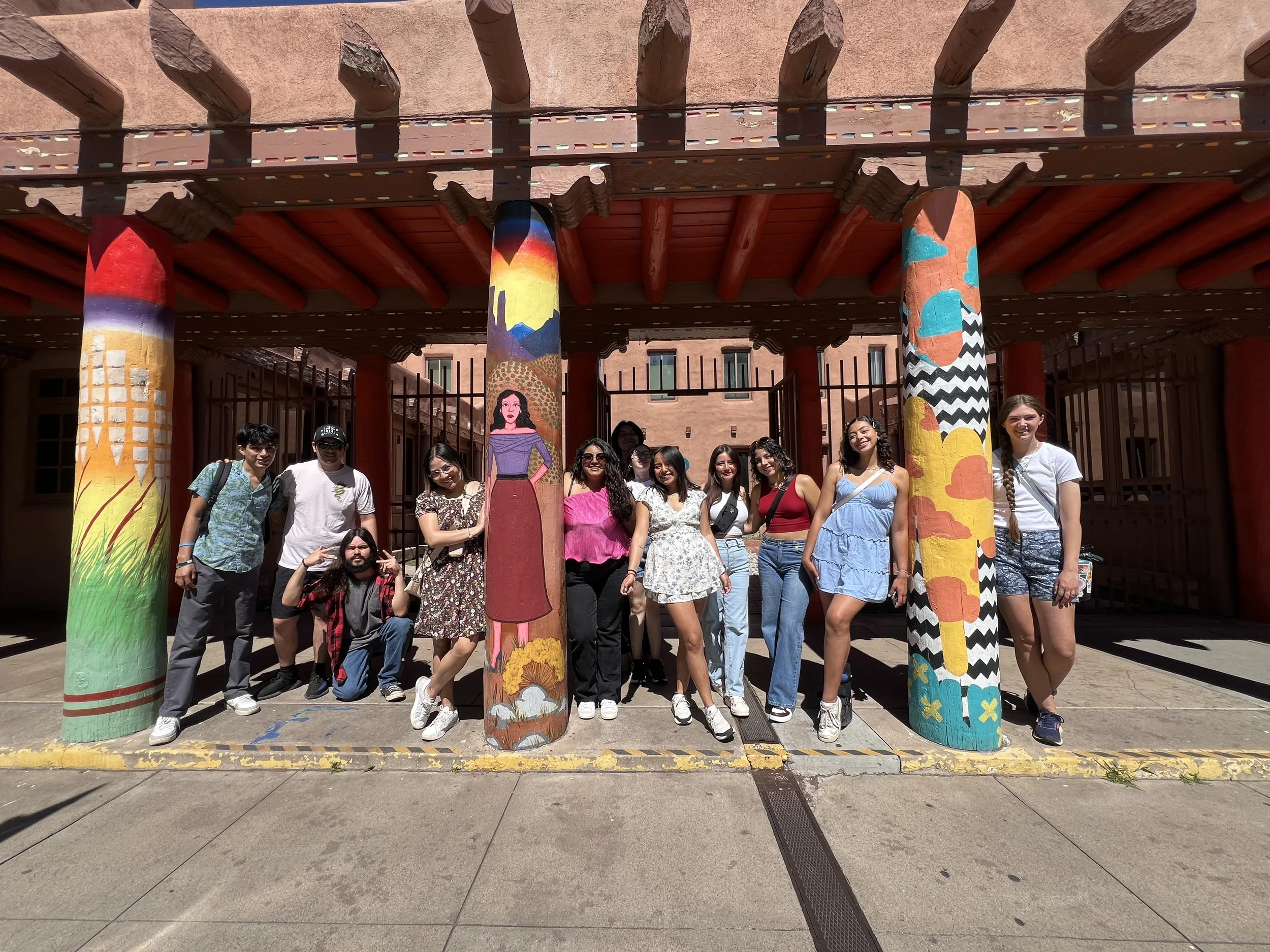Culture Shock For J-1 Camp Counselors
And How To Overcome It During Your Program In The USA!
Becoming a J-1 Camp Counselor in the U.S. is an unforgettable adventure. You are not just spending your summer at the camp; you are immersing yourself in a new culture, meeting people from around the world, and living in a totally different environment. But with all that excitement can come a challenge: culture shock.
Culture shock is a natural response to being in an unfamiliar environment where social norms, daily routines, and even small details like food or communication styles can feel completely different from what you are used to. It does not mean you are not enjoying your experience; it simply reflects the process of adjusting to new surroundings. Recognizing the signs early can help you manage them effectively, so your time as a J-1 Camp Counselor remains positive and enriching.
If you feel confused, homesick, or overwhelmed at some point, do not worry, you are not alone. We provide an explanation to help you understand the nuances of international travel. Let’s break down what culture shock is, what you might experience, and how you can navigate it with confidence.
What Is Culture Shock?
Culture shock is the emotional and mental adjustment you go through when adapting to a new culture. It’s completely normal and temporary.
For J-1 Camp Counselors, culture shock often comes from:
Different social norms and humor
Language barriers or slang
Food and eating habits
Camp routines and communication styles
Missing home, family, or familiar traditions
The Four Stages of Culture Shock
1. The Honeymoon Phase: Everything is new, exciting, and fun. You are taking photos, trying new foods, and making friends.
Examples: You are excited about American camp traditions like s’mores, campfires, or the Fourth of July, and you find the new environment fascinating.
Duration: Days to weeks, depending on your personality and prior international experience.
2. The Frustration Phase: You might feel tired, misunderstood, or annoyed by unfamiliar habits. Homesickness often sets in here.
Examples: You may struggle with American slang, feel overwhelmed by the fast-paced camp schedule, or miss familiar foods from home.
Duration: Weeks to months, often peaking early in your program (e.g., first 2–4 weeks).
3. The Adjustment Phase: You begin to understand cultural differences, feel more confident speaking English, and develop routines.
Examples: You learn to navigate camp dynamics, build friendships with co-counselors, and adapt to American communication styles.
Duration: Mid-program, as you gain confidence.
4. The Adaptation Phase: You feel like you belong. You have found your rhythm, built connections, and can laugh at what once confused you.
Examples: You enjoy camp traditions, connect deeply with campers and staff, and feel like part of the community.
Duration: Toward the end of your program, though some counselors may not fully reach this stage during short-term stays (2–4 months).
Common Culture Shock Moments At Camp
Direct Communication: Americans are often more open and assertive than other cultures.
Over-the-top Enthusiasm: At camp, staff may seem loud, cheerful, and full of energy 24/7.
Food And Daily Life: American camp food (e.g., hot dogs, peanut butter sandwiches) may feel unfamiliar or less varied than your home cuisine. You might miss spicy or home-cooked meals. This can contribute to homesickness or physical discomfort.
Lack Of Personal Space: Living in cabins means constant closeness and shared spaces. Living in shared cabins with limited privacy can also be jarring. You may find camp accommodations (e.g., bunk beds, communal bathrooms) less comfortable than expected.
Time Management: Schedules are strict and punctuality matters.
Camp Slang: Words like “bug juice,” “counselor-in-training,” or “lights out” may be confusing at first. Even if you are fluent in English, American slang, accents, or fast-paced speech (especially among campers) can be hard to follow.
Traditions: U.S. summer camps have distinct traditions, such as camp songs, skits, color wars, or intense team spirit, which may feel unfamiliar or overly enthusiastic compared to your home country’s norms. You might find the constant cheering or “camp spirit” (e.g., chanting during meals) overwhelming or childish at first. This can lead to feelings of alienation or difficulty connecting with the camp’s energy.
Work Expectations: U.S. camps often demand long hours (e.g., 24/7 camper supervision) and high-energy performance, which may differ from work-life balance norms in your home country. You might be surprised by the expectation to lead activities with constant enthusiasm, even when tired, or by limited personal time. This can lead to exhaustion or feeling undervalued if you’re used to more structured work hours.
Social Norms: American social customs, such as casual friendliness, punctuality, or individualism, may differ from your cultural norms. You might find it odd that Americans greet strangers with smiles or expect you to arrive exactly on time for activities. These differences can make social interactions feel awkward or isolating.
Homesickness: Being far from family, friends, and familiar surroundings, especially in the rural settings of many camps, can intensify feelings of isolation. Limited Wi-Fi or time to connect with home may make you feel disconnected. Homesickness can amplify other culture shock symptoms, affecting your mood and performance.
Tips For Coping With Culture Shock
Talk About It: Share your feelings with fellow counselors or your camp director. You are likely not the only one adjusting.
Stay Curious: Ask questions. Most Americans are happy to explain things if you show interest.
Keep In Touch With Home: Don’t isolate yourself. A short video call can help, but try not to spend your free time only online.
Take Care Of Your Body: Sleep, hydration, and regular meals help your mood and mindset.
Celebrate Small Wins: Whether you lead your first activity or make a camper smile, each success matters.
Research U.S. Camp Culture: Watch videos or read blogs about American summer camps (to familiarize yourself with traditions like campfires, color wars, or counselor roles.
Learn Basic Slang: Study common American and camp-specific terms (e.g., “bunk” for cabin, “mess hall” for dining area) to ease communication.
Connect With Alumni: Reach out to former J-1 Camp Counselors from your country through your sponsor’s network or social media for tips and insights.
Bond With Co-Counselors: Make an effort to connect with other J-1 Camp Counselors and American staff. Share your experiences and ask about theirs to build camaraderie.
Embrace The Camp Environment: Dive into camp activities, even if they feel unfamiliar. Singing camp songs or leading skits can help you feel part of the community. If you don’t understand a tradition or expectation, ask your supervisor or co-counselors for clarification. Most will appreciate your curiosity. Seek small ways to maintain your culture, like cooking a dish from home for a camp event (if permitted) or teaching campers a game from your country.
Explore Beyond The Camp
Plan Short Trips: Use your days off or the Travel Grace Period after your program to explore nearby cities for a change of pace.
Engage Locally: Visit local towns or attractions near your camp to better understand American culture outside the camp bubble.
More Tips
Understand Camp Dynamics: Camps emphasize teamwork and enthusiasm. Even if it feels unnatural, showing energy in activities like cheering or skits can help you integrate.
Leverage Your Role: As a J-1 Camp Counselor, you are a role model for campers. Sharing your culture (e.g., teaching a dance or story from your country) can build connections and boost your confidence.
Budget for Comfort: Use your stipend to buy familiar snacks or personal items if camp food feels limiting. Check with your camp about bringing food to share.
Navigate Rural Settings: Many camps are in remote areas, which can feel isolating. Plan activities with co-counselors or use camp resources (e.g., Wi-Fi, recreation areas) to stay connected.
Final Thoughts
Feeling culture shock is a natural part of the cultural exchange experience. But with time, patience, and an open mind, culture shock fades, and is replaced by personal growth, new friendships, and memories you will cherish for life.
During this adjustment period, it’s normal to feel confused, frustrated, or even homesick. Every new custom you encounter, every unfamiliar social cue, and every small misunderstanding is an opportunity to learn, not just about the culture around you, but also about your own strengths, adaptability, and perspective. Embracing these moments, rather than resisting them, helps turn challenges into valuable life lessons.
Remember: you are not just surviving the summer, you are building resilience and becoming a global citizen. And that is something to be proud of!



